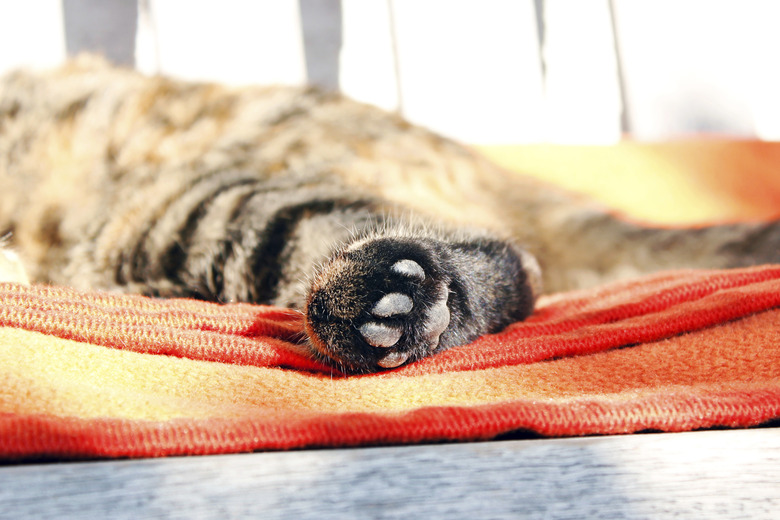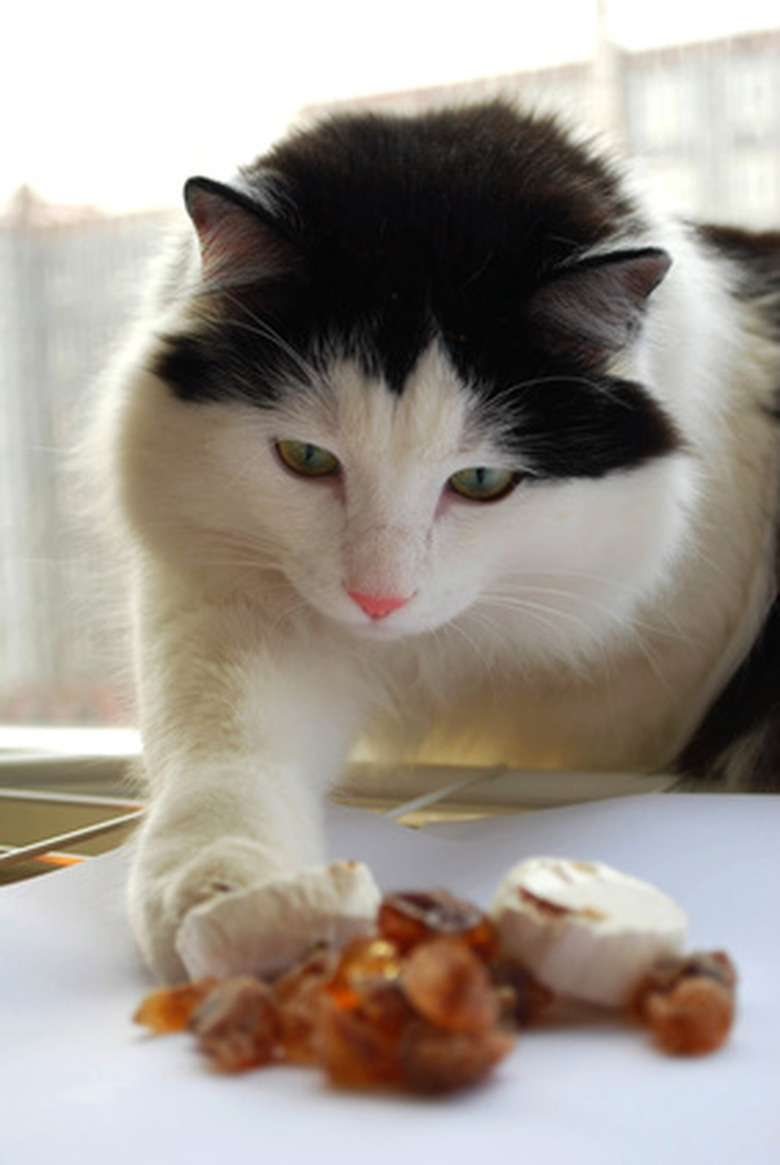Why Is My Cat Losing Hair On The Back Legs?
There are several reasons that may cause your cat to suffer from hair loss on its back legs. The ASPCA recommends bringing your cat to the veterinarian, as hair loss can be caused by fleas, food allergies, a bacterial infection or even an autoimmune disease. Hair loss, or alopecia, in cats can range from treatable to serious. Have your cat diagnosed and treated for the condition causing its hair loss.
Contact and Inhalant Dermatitis
Contact and Inhalant Dermatitis
Cats, like humans, can suffer from contact and inhalant dermatitis due to an allergic reaction. Contact dermatitis is when the allergen touches the cat's skin. Allergens include antibiotics, certain metals or materials, household chemicals or plants such as poison ivy. Other symptoms include red, itchy skin, bumps and blisters on the hairless areas. Inhalant dermatitis has similar symptoms, including inflamed, red ears and excessive feet licking. It is caused by inhaled allergens like dust mites and pollen.
Fleas
Fleas
Flea saliva may cause an allergic reaction in cats. Cats who also venture outdoors are susceptible to fleas, an external parasite that pierces the cat's skin and feeds on the animal's blood. Because fleas have many different lifecycle stages, more than one flea treatment is usually needed. When fleas bite the cat's skin, the saliva may cause irritation, leading to itchy, red skin, hair loss and crusty scaling. Left untreated, fleas also cause anemia in infested cats and kittens, sometimes leading to death.
Food Allergies
Food Allergies
Often, hair loss in cats is caused by an allergic reaction to a particular food in the cat's diet. The only way to treat this is by conducting food elimination trials, observing the cat's positive or negative reaction to foods that have been removed from the diet. Food allergies have similar symptoms to inhalant dermatitis, including excessive licking of the feet and inflamed ears. Food allergy symptoms also include hair loss and hot spots, which are sore, red blotches on the cat's skin.
Folliculitis
Folliculitis
Folliculitis is a disease that causes a bacterial infection in the hair follicles. Although hair loss typically appears on the cat's face and neck, it can also be seen on the body. Hair loss is caused by pustules that form in the follicles. When the pustules open, the liquid inside is released, forming a crust on the cat's skin. This leads to hair loss. Folliculitis is typically due to an underlying condition or some type of allergy.
Alopecia Areata
Alopecia Areata
Although rare, alopecia areata is also a cause of hair loss in cats. Alopecia areata is an autoimmune disease that usually results in noninflammatory hair loss. That is, there are no signs of redness, itching or scabbing on the cat's skin. According to a 2003 Word Small Animal Veterinary Association article, this disease is caused by lymphocytes that attack the bulbus region. Cats usually recover from alopecia areata on their own, as immunosuppressive drugs are typically not effective.
Always check with your veterinarian before changing your pet's diet, medication, or physical activity routines. This information is not a substitute for a vet's opinion.

